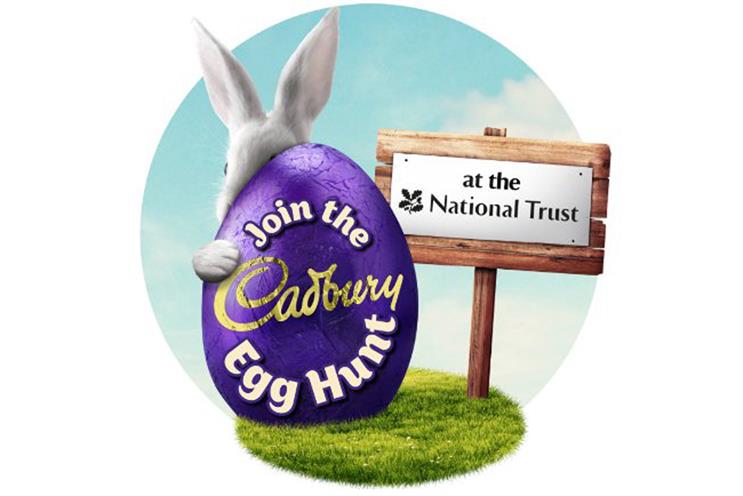The transfiguration of "Easter Egg Trails" to "Cadbury Egg Hunts" has been described in the British press as an outrage. This choco-secularisation can hardly be relevant to founder John Cadbury’s Christian roots since Mondelez International has owned the brand since 2010. The real question is "do kids want to go on a ‘trail’ or a ‘hunt’"? My money is on the latter.
It’s clear to see, even from the ad in question, that Cadbury is not afraid to be aligned to Easter. Head to its microsite and you are greeted by the message, "hunting for a way to make Easter magical?" This is even accompanied by a call to action to explore the brand’s range of "tasty Easter products".
This is likely to be purely for copywriting elegance. These festivities are synonymous with the season and hardly require further mention of the holiday in question. There may even be a commercial advantage at play here; these chocolate products can now be sold as year-round confectionary more easily. With Easter products appearing on shelves as early as December 2016, this would not be surprising.
We will probably see further changes of this type, particularly for companies that have been acquired by large multinationals. Cadbury’s owner is a large US corporation, which will have its own global as well as regional approach to marketing. Some of this will be driven by its brand values as well as regulatory frameworks. Americans tend to omit overt references to religion in the business sphere and this is reflected in how companies do their marketing around holidays.
It’s also misleading to highlight this one single event – marketing is often driven by broader shifts in public attitudes. In a 2015 study conducted in the US, only 38% of those born after 1990 stated that religion played an important role in their life, compared to 67% cited by those born before 1945. Attitudes and beliefs are evidently changing and marketers are aware of this.
Regardless of their personal outlook, marketers and designers will manage their strategies accordingly. This may not only be driven by ethical issues. Having the flexibility to use different creative approaches enables companies to differentiate themselves from the noise of their competitors’ seasonal campaigns.
A campaign that shows the separation between individuals, nations and corporations was delivered by hotel chain Marriott, which is run by a visible, lifelong Mormon executive director who had previously been outspoken about traditional marriage. The company recognised the growing LGBT travel market in the United States and subsequently delivered its #LoveTravels marketing campaign, which encourages all travellers to be comfortable regardless of sexual preference or gender.
We have also seen flames being fanned by the prime minister. I imagine most people want a PM to have the courage to share their personal views on topics of passion. However, this seems like a waste of airtime in the context of the many other important issues that require leadership.
Let’s simplify. The Church is about religion, Cadbury’s can get on with making chocolate and the government should be about improving our lives.
Mat Heinl is the chief executive of


